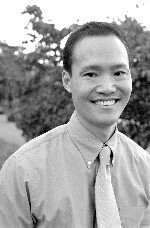DR. HOOK- Just the facts: Don't trust reports of medical miracles

Evidence Based Medicine (EBM)– an oxymoron? You know how people joke that military intelligence, children's literature, and jumbo shrimp are oxymorons?
My whole medical training was based on EBM. I've replaced reading People Magazine with peer-reviewed medical journals. In EBM, doctors look to medical studies to guide them in making medical decisions. We look for outcomes, outcomes, and outcomes– such as how much are heart attacks reduced by this medicine, how many people will be spared from blindness with this procedure, how much happier are people with this lifestyle modification, and so forth.
But you know what? Research is very hard to do well. There's a lot of bad research out there.
My students used to ask me why medical journals publish so much trash. It's like The National Enquirer: I think most of their information is trash, but yet there seems to be an element of truth in all of it.
Many medical journals may publish a bad study because they find something interesting, which leads to more questions. Also, trash sells. The news loves to announce the latest controversy in medicine. Haven't you noticed how one week they say something is good for you, but they next week, "Uh-oh. It will kill you. Call your lawyer for a class action settlement, so he can make millions and you can collect $0.85."
My professors always told me that studies never prove anything. They only show risks, benefits, and associations. For example, taking a particular medicine might have a high association with longer life, but the connection can never be proved.
That's why the medical field, unlike physics, doesn't have "laws." While there's a Law of Gravity, there's no such thing as a Law of Diabetes Medicine.
When a research study is designed, a bunch of math and clinical information goes into figuring out how to do it. The study is designed to look at a particular outcome, called the primary outcome. For example, let's say I did a study to show if visiting DrJohnHong.com increases happiness (as it should...) in women aged 20-55 years.
Hooray! My study shows an 85 percent increased level of happiness in these women, so I go to NBC to report my wonderful results. The public then believes my web page makes women happier, without knowing all the details or if it even pertains to them.
Then let's say I go further. I report my secondary outcomes (other information collected but not statistically designed into that research study... so with less merit). I noticed that these women also lost weight. Here lies a big problem. People in general will interpret this to mean, "I will be skinny like Kate Moss if I read this web page!"
But there's no proof of this claim. As a secondary outcome, it was just an observation that needs another study.
Okay, now pretend that one year later, someone designs a study to specifically investigate if reading DrJohnHong.com makes women lose weight. Their study finds that women lost weight in the first six months of reading, but at the same time they were buying more handbags. After six months of mounting credit card debt from the handbags, they ended up divorced, unhappy, and overweight. See the problem?
I still believe in EBM. I just know how to interpret the data better than the media. That's why I think it's important for patients to discuss things with their doctors and let their doctors, not the media, manage their healthcare.
Dr. Hook cracks a joke or two, but he's a renowned physician with a local practice. Email him with your questions.
#